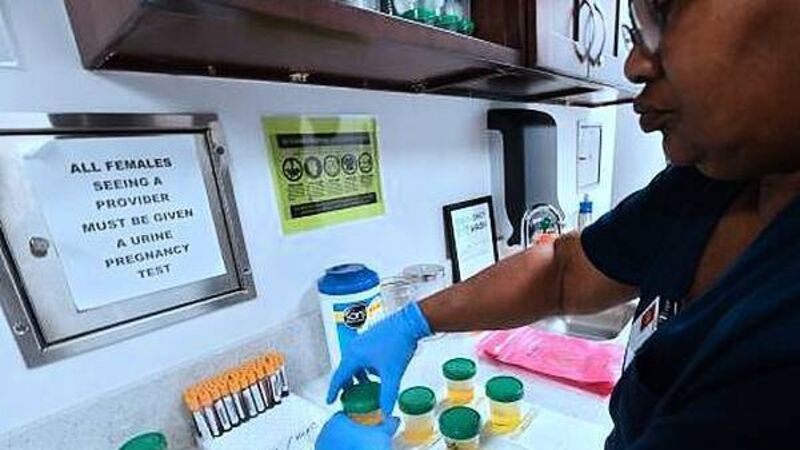People in rural communities travellling hours to be tested for STIs because of stigma, doctor says

Olivia Kelleher
Members of the public in rural communities are travelling for many hours to reduce the risk of being seen getting tested or treated for sexually transmitted infections (STIs).
Consultant of Sexual Health and HIV Care at St James’s Hospital in Dublin, Dr Aisling Loy, told The Pat Kenny show on Newstalk that “stigma and shame” around sexually transmitted diseases are very much still hindering her work.
“It (the stigma and shame) is probably a bit less than it was in the 1980s and the 1990s, but there is still a lot of shame.
“I work in Dublin, but I think outside of Dublin, especially, I would have patients who travel for many, many hours to come to a clinic in Dublin, so not to be seen locally.
“I hear those stories every day of shame and stigma still attached [to STIs].”
STI figures in Ireland are 31 per cent higher than they were in 2019. However, the numbers decreased by 11 per cent in a twelve month period last year.
Dr Loy said that the figures peaked in 2023.
“Thankfully, over the last two years, the strategy and the interventions that have been in place have started to see a decline.
“So far this year, we’ve seen 15 to 20 per cent decreases - so, that’s the good news.
“However, overall, it’s been increasing; we don’t know fully why.
“We think there’s more access to care with free online testing services that are available.
“We know that people are now maybe taking more risks; they’re not using condoms as much.
“They’re maybe having more sexual partners and we’ve had a rise in our population as well - so, there’s many factors.”
Dr Loy continued that the expansion of easy access to sexual health care will significantly assist healthcare professionals in reducing the number of people contracting STIs.
“That’s really important, for people to be able to test and access treatment if they need it,” she said.
“So, the thing that they noticed was that with the 23 free clinics that the HSE provides, there’s still 10 counties in Ireland that don’t provide any sexual health services in their counties.
“So, it’s all about expansion of services and making access to care more accessible to not just young people, but the full population.”
Dr Loy added that there has been a “lot of progress on HIV” in recent years.
“The group that should be targeted are being targeted with messaging online and public health campaigns,” she said.
“That’s mostly in the GBMSM (gay, bisexual, men who have sex with men) community.
“And we have PReP, which is HIV prevention, which was introduced in Ireland in 2019. We also ‘test and treat’, so as soon as people are diagnosed, they’re on treatment. This means that they can’t pass it on.”









